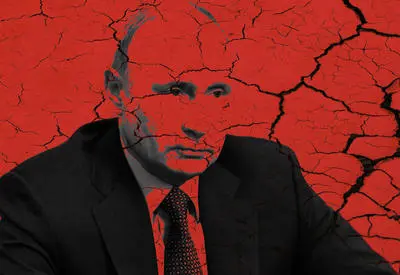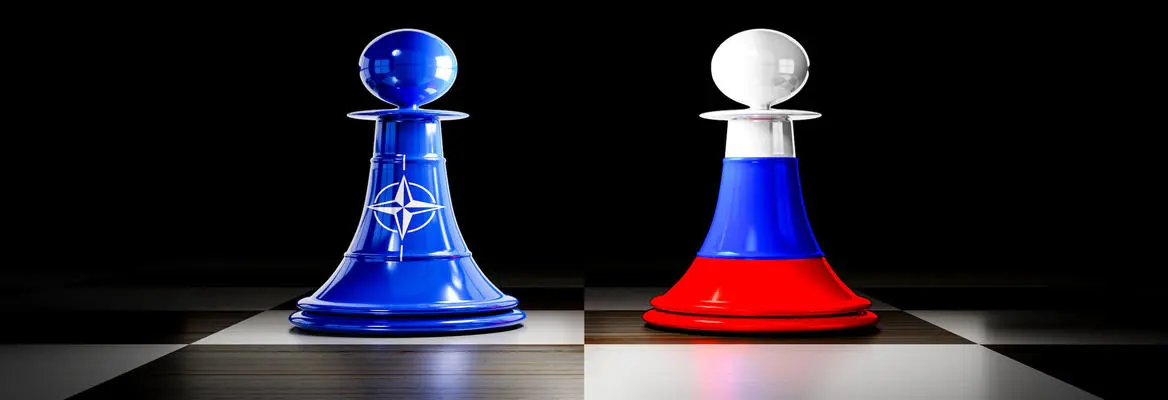The western response to Russia’s invasion of Ukraine was supposed to help the latter by punishing the former. That strategy isn’t working. Punishing Russia economically is suring up Putin’s position domestically, NATO’s expansion is strengthening the China-Russia alignment, and military assistance to Ukraine without direct NATO involvement is merely protracting the war, with no clear end in sight. Given the geopolitical deadlock, the only viable option would be for the West to broker a neutrality status for Ukraine. It will be a difficult deal, with lots of costly compromises, but at this point it's the only geoplolitical solution available, writes Alexander Korolev.
The West’s response to Russia’s invasion of Ukraine on 24 February 2022 can be broken down into three main prongs. The first one has to do with the imposition of unprecedented economic sanctions to inflict enough punishment on Russia to delegitimise Vladimir Putin’s political regime or make it change its foreign policy calculus and stop the war. The second prong materialized in extensive military assistance to Ukraine to help Kyiv fence off Russia’s aggression by making the costs of the war unacceptable to Moscow. The third prong took the form of a new round of NATO expansion into Finland and Sweden – to contain aggressive Russia more effectively and, according to NATO General Secretary Jens Stoltenberg, demonstrate that NATO’s door remains open regardless of Mr Putin’s preferences and that smaller states have full agency over their foreign policy choices.
The geopolitical implications of this three-prong response emerge as opposite to the intended outcomes. While punishing Russia, it fails to help end the Russia-Ukraine war. Instead, by all evidence, it consolidates Putin’s grip on power and makes him dig in for a long haul in Ukraine.
___
___
 SUGGESTED READING
How we got Putin so wrong
By Stathis N. Kalyvas
The economic sanctions have failed to have a tangible impact on Russia’s behaviour in Ukraine. Nor did they undermine Putin’s domestic standing. Even smaller states could sustain an enormous amount of economic punishment without populations and elites revolting against the ruler. In Russia, the Western economic sanctions have encountered Russia’s own nationalism that, with the assistance of state propaganda, effectively channels public indignation about economic hardships into anger against the external enemy and the cause of the pain – the West. The more the West uses sanctions to push against Russia and threaten the existing political regime, the more the majority of Russians rally around Putin. According to recent public opinion polls, 76% of Russians trust their president. Moreover, the data reveals that while in December 2021 only 62% of Russians approved of Putin’s job as the President, in May 2022 this figure rose to more than 70%, with 61% noticing increased social unity around the President. This level of support allows Putin to claim to have a public mandate to continue carrying out his “special operation” in Ukraine.
SUGGESTED READING
How we got Putin so wrong
By Stathis N. Kalyvas
The economic sanctions have failed to have a tangible impact on Russia’s behaviour in Ukraine. Nor did they undermine Putin’s domestic standing. Even smaller states could sustain an enormous amount of economic punishment without populations and elites revolting against the ruler. In Russia, the Western economic sanctions have encountered Russia’s own nationalism that, with the assistance of state propaganda, effectively channels public indignation about economic hardships into anger against the external enemy and the cause of the pain – the West. The more the West uses sanctions to push against Russia and threaten the existing political regime, the more the majority of Russians rally around Putin. According to recent public opinion polls, 76% of Russians trust their president. Moreover, the data reveals that while in December 2021 only 62% of Russians approved of Putin’s job as the President, in May 2022 this figure rose to more than 70%, with 61% noticing increased social unity around the President. This level of support allows Putin to claim to have a public mandate to continue carrying out his “special operation” in Ukraine.





















Join the conversation